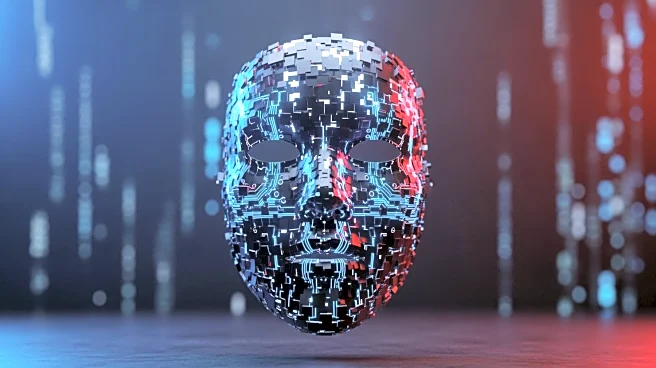What's Happening?
Scammers are increasingly using artificial intelligence and deepfake technology to create convincing scams, including a recent hoax involving Taylor Swift. The scam falsely claims that Swift is giving away Le Creuset products, leveraging AI-generated
deepfake videos to make the offer appear legitimate. As these technologies become more sophisticated, they produce realistic-looking results that can easily deceive the public. The report highlights the need for vigilance against deals that seem too good to be true, as scammers continue to refine their methods using advanced technology.
Why It's Important?
The use of AI and deepfakes in scams represents a significant threat to consumers and businesses alike. As these technologies evolve, they can undermine trust in digital communications and transactions, leading to potential financial losses and reputational damage. The ability to create realistic deepfakes can also pose challenges for law enforcement and cybersecurity professionals tasked with identifying and mitigating fraudulent activities. This development underscores the importance of enhancing digital literacy and security measures to protect against increasingly sophisticated scams.















